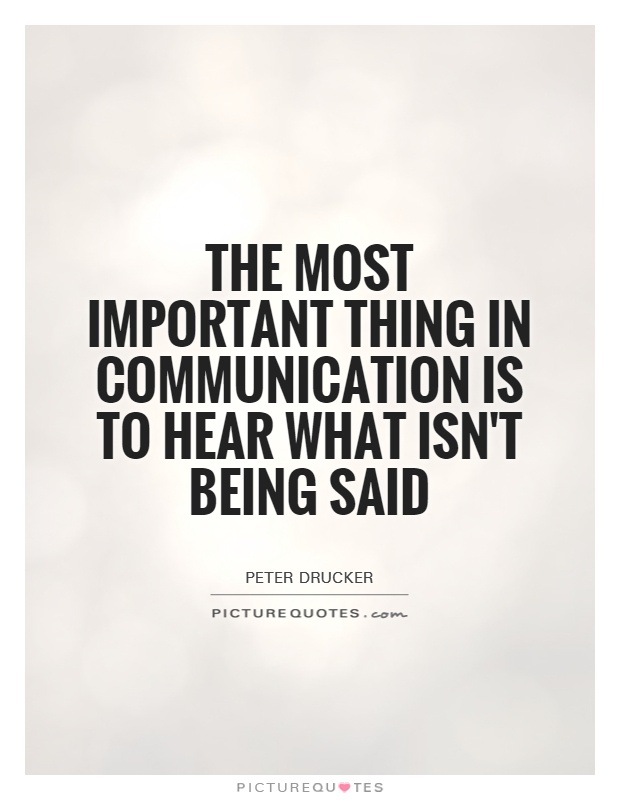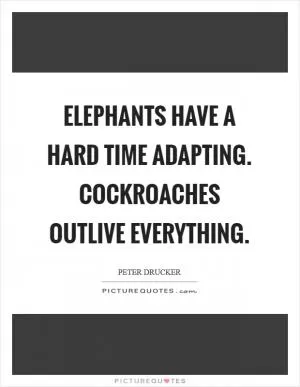The most important thing in communication is to hear what isn't being said

Listening QuotesThe Most Important QuotesMost Important QuotesImportant Thing QuotesListen QuotesPeter Drucker Quotes
The most important thing in communication is to hear what isn't being said
Peter Drucker, often referred to as the father of modern management, emphasized the importance of effective communication in organizations. He believed that communication was not just about the words spoken, but also about understanding the underlying messages and emotions that are not explicitly stated. Drucker famously said, “The most important thing in communication is to hear what isn't being said.”In the context of Peter Drucker’s philosophy, this statement highlights the significance of active listening and empathy in communication. It is not enough to simply hear the words that are being spoken; one must also pay attention to nonverbal cues, tone of voice, and body language to truly understand the message being conveyed. Oftentimes, what is left unsaid can be just as important as what is said.
Drucker believed that effective communication is essential for building strong relationships, fostering collaboration, and driving organizational success. By listening to what is not being said, leaders can gain valuable insights into the thoughts, feelings, and motivations of their team members. This allows them to address underlying issues, build trust, and create a positive work environment.
In a business context, understanding what is not being said can also help leaders anticipate challenges, identify opportunities, and make informed decisions. By listening to the unspoken concerns and feedback of employees, managers can address issues before they escalate, improve employee engagement, and boost productivity.
Furthermore, by paying attention to what is not being said, leaders can also better understand the needs and expectations of their customers. By listening to their unspoken desires and preferences, businesses can tailor their products and services to meet customer needs and enhance customer satisfaction.












 Friendship Quotes
Friendship Quotes Love Quotes
Love Quotes Life Quotes
Life Quotes Funny Quotes
Funny Quotes Motivational Quotes
Motivational Quotes Inspirational Quotes
Inspirational Quotes